Resources
 In light of the issues surrounding racism in the United States, we have compiled a list of articles, podcasts, movies and books to help educate and enlighten.
In light of the issues surrounding racism in the United States, we have compiled a list of articles, podcasts, movies and books to help educate and enlighten.ARTICLES
• Hannah-Jones, Nikole. (2019). The 1619 Project. The New York Times Magazine.
• Coates, Ta-Nehisi. (2014). The Case for Reparations. The Atlantic.
• DiAngelo, Robin. (2017). Why It’s So Hard to Talk to White People About Racism. Huffington Post.
• McIntosh, Peggy. (1990). White Privilege: Unpacking the Invisible Knapsack. Antiracist Alliance.
• Hinton, Elizabeth. (2020). The Minneapolis Uprising in Context. Boston Review.
• Hunt, Dynasti. (2020). 5 Thoughtful Ways to Approach Discussing Racism at Work. Fast Company.
• Morrissey, Brain. (2020) For Media Organizations to Change, Equality Needs to Be a Keystone Habit.
Dididay.
• Serwer, Adam. (2020). The Coronavirus Was an Emergency Until Trump Found Out Who Was Dying.
The Atlantic.
• Abdul-Jabbar, Kareem. (2020). Don’t Understand the Protests? What You’re Seeing is People Pushed to the Edge. Los Angeles Times.
PODCASTS
• Hannah-Jones, Nikole. 1619. The New York Times.
• Carroll, Rebecca. Come Through with Rebecca Carroll. WNYC Studios.
• Biewen, John. Seeing White. Scene On Radio.
• Raghuveera, Nikhil and Erica Licht. Untying Knots. SoundCloud.
• Moyo, Thoko. A historic crossroads for systemic racism and policing in America. PolicyCast.
Featuring Khalil Muhammad and Erica Chenoweth.
MOVIES
• 13th
In this thought-provoking documentary, scholars, activists, and politicians analyze the criminalization of African Americans and the U.S. prison boom.
• Just Mercy
After graduating from Harvard, Bryan Stevenson had his pick of jobs . Instead, he heads to Alabama to defend those wrongly condemned or who were not afforded proper representation. One of his first cases is that of Walter McMillian who was on death row.
• The Central Park Five
This film tells the story of five black and Latino teens from Harlem that were arrested and convicted of raping a white woman in NYC’s Central Park. Learn about the rush to judgement by the police, a media clamoring for sensational stories, an outraged public, and the five lives that were upended by this miscarriage of justice.
BOOKS
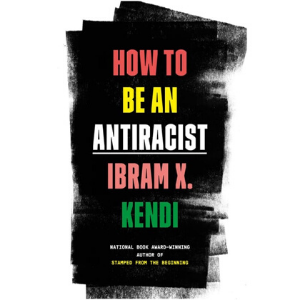
How to Be an Antiracist
Ibram X. Kendi‘s concept of antiracism reenergizes and reshapes the conversation about racial justice in America – but even more fundamentally, points us toward liberating new ways of thinking about ourselves and each other. Instead of working with the policies and system we have in place, Kendi asks us to think about what an antiracist society might look like, and how we can play an active role in building it.
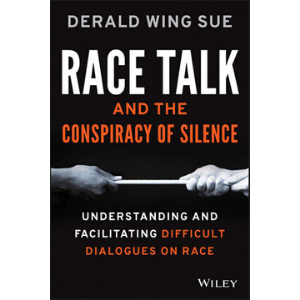
Race Talk and the Conspiracy of Silence
If you believe that talking about race is impolite, or that “colorblindness” is the preferred approach, you must read this book. Derald Wing Sue debunks the most pervasive myths using evidence, easy-to-understand examples, and practical tools.
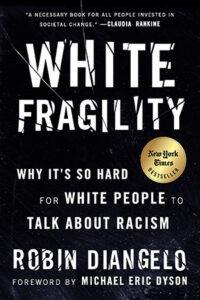
White Fragility
Referring to the defensive moves that white people make when challenged racially, white fragility is characterized by emotions such as anger, fear, and guilt, and by behaviors including argumentation and silence. These behaviors, in turn, function to reinstate white racial equilibrium and prevent any meaningful cross-racial dialogue. In this in-depth exploration, Robin DiAngelo examines how white fragility develops, how it protects racial inequality, and what we can do to engage more constructively.
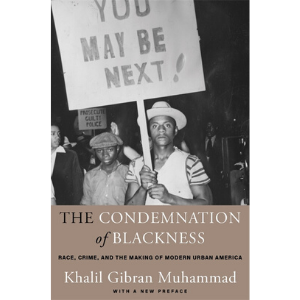
The Condemnation of Blackness
The idea of Black criminality was crucial to the making of modern urban America, as were African Americans’ own ideas about race and crime. Chronicling the emergence of deeply embedded notions of Black people as a dangerous race of criminals by explicit contrast to working-class whites and European immigrants, Khalil Gibran Muhammad – HKS Professor of History, Race, and Public Policy – reveals the influence such ideas have had on urban development and social policies.
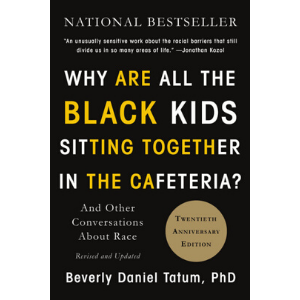
Why Are All the Black Kids Sitting Together in the Cafeteria?
Walk into any racially mixed high school and you will see Black, white, and Latino youth clustered in their own groups. Is this self-segregation a problem to address or a coping strategy? Beverly Daniel Tatum, a renowned authority on the psychology of racism, argues that straight talk about our racial identities is essential if we are serious about enabling communication across racial and ethnic divides.
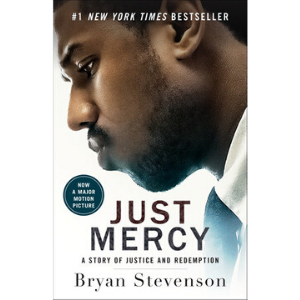
Just Mercy
This book is Bryan Stevenson‘s (MPP/JD 1985 LLD 2015) unforgettable account of an idealistic, gifted young lawyer’s coming of age, a moving window into the lives of those he has defended, and an inspiring argument for compassion in the pursuit of true justice. Stevenson was honored by HKS in 2018 with the 2018 Alumni Public Service Award.
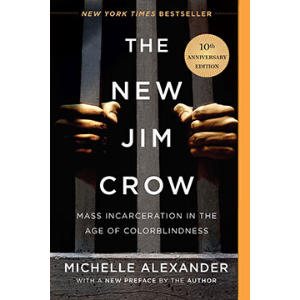
The New Jim Crow
The New Jim Crow has spawned a whole generation of criminal justice reform activists and organizations motivated by Michelle Alexander’s unforgettable argument that “we have not ended racial caste in America; we have merely redesigned it.” As the Birmingham News proclaimed, it is “undoubtedly the most important book published in this century about the U.S.”
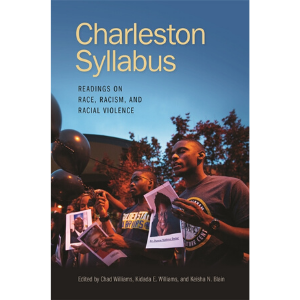
Charleston Syllabus
In the aftermath of the Charleston massacre, Professors Chad Williams, Kidada E. Williams, and Keisha N. Blain sought a way to put the murder-and the subsequent debates in the media-in the context of America’s tumultuous history of race relations and racial violence on a global scale. They created the Charleston Syllabus on June 19, starting it as a hashtag on Twitter linking to scholarly works on the myriad of issues related to the murder.
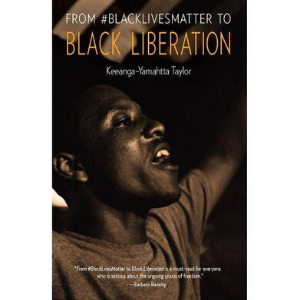
From #BlackLivesMatter to Black Liberation
In this stirring and insightful analysis, activist and scholar Keeanga-Yamahtta Taylor surveys the historical and contemporary ravages of racism and persistence of structural inequality such as mass incarceration and Black unemployment. In this context, she argues that this new struggle against police violence holds the potential to reignite a broader push for Black liberation.
For further education, consider other contemporary black authors including Thomas Soule, Walter Williams, Clarence Thomas or Shelby Steele. For historical balance, writings from Fredrick Douglas, George Washington Carver, Booker T. Washington, Martin Luther King and Malcom X.
